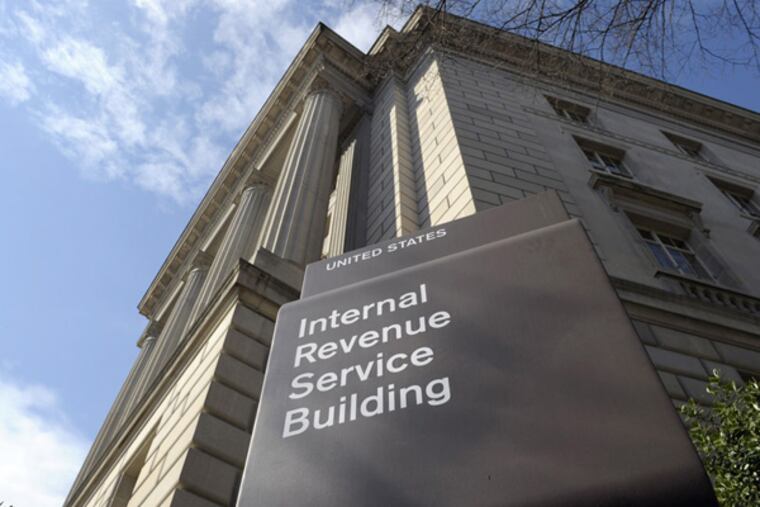IRS uproar a path to simplify tax code?
Bipartisan lawmakers: Scandal shows rules are too complex, the agency too powerful.

WASHINGTON - The storm engulfing the Internal Revenue Service could provide a boost for lawmakers who want to simplify U.S. tax laws - a code that is so complicated, most Americans buy commercial software to help them or simply hire someone else to do it all.
Members of Congress from both political parties say the current uproar - over the targeting of conservative political groups - underscores that overly complex tax provisions have given the IRS too much discretion in interpreting and enforcing the law.
"This is the perfect example of why we need tax reform," said Rep. Tim Griffin (R., Ark.), a member of the tax-writing House Ways and Means Committee. "If you want to diminish and limit the power of the IRS, you have got to reduce the complexity of the tax code and take them out of it."
There are still formidable obstacles to completing a major tax overhaul this year or next. Democrats and Republicans start off with opposite views on whether the government should levy more taxes and on who should pay what share. The two sides also don't trust one another, making it difficult to envision agreement on which popular tax breaks to keep and which to scrap.
In a report earlier this year, national taxpayer advocate Nina E. Olson ranked complexity as the most serious problem facing both taxpayers and the IRS. People simply trying to comply with the rules often make inadvertent errors and overpay or underpay, she said, while others "often find loopholes that enable them to reduce or eliminate their tax liabilities."
The IRS scandal has little, if anything, to do with most everyday taxpayers, yet some lawmakers hope the attention will help galvanize support for the first major tax overhaul since 1986.
A little over two weeks ago, the IRS revealed that agents assigned to a special team in Cincinnati had targeted tea party and other conservative groups for additional, often burdensome, scrutiny when they applied for tax-exempt status.
The ensuing storm has cost two top IRS officials their jobs, and a third is on paid administrative leave. Investigations by Congress and the Justice Department are underway.
The IRS was screening groups' applications to determine their level of political activity. IRS regulations say that tax-exempt social-welfare organizations can engage in some political activity, but that the activity cannot be their primary mission. It is a vague standard agents struggled to apply, the inspector general's report said.
Lawmakers in both parties are convinced that simpler, easier-to-understand tax laws would spur economic activity. But there are significant partisan differences.
In exchange for lower tax rates, would workers be willing to pay taxes on employer-provided health benefits or on contributions to their retirement plans? How would homeowners feel about losing the mortgage interest deduction?
Those are the three biggest tax breaks in the tax code, say congressional estimates. Together, they are projected to save taxpayers nearly $300 billion this year.
"Those are very big important questions," said Sen. Max Baucus (D., Mont.), chairman of the Senate Finance Committee, "and we're going to tackle them."